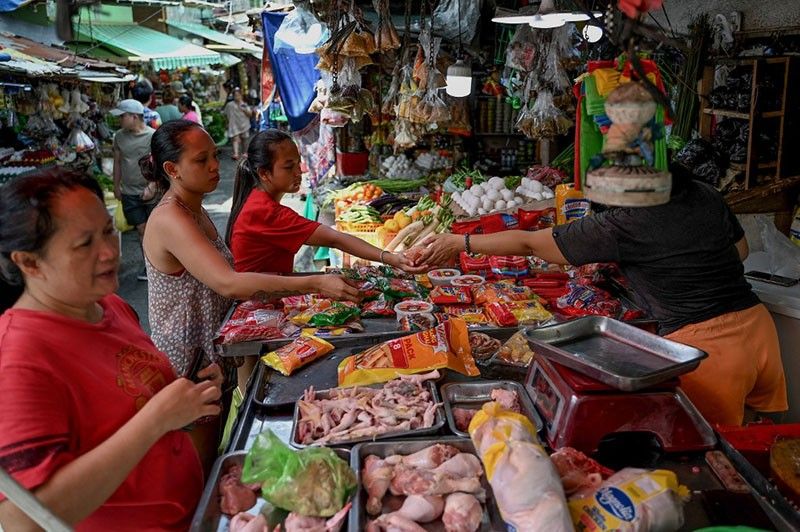Philippines needs collective action to address economic challenges

Late last month, the Social Weather Stations (SWS) released its latest survey on self-rated poverty, which found that 48% of Filipino families classified themselves as “poor” in the third quarter of the year. While this was slightly higher than the 45% recorded in the previous quarter, families that rated themselves as “not poor” saw an increase during the same period, from 22% to 25%.
The most recent survey conducted by Pulse Asia Research in September 2023 showed that controlling inflation remains the most urgent national concern of the majority of Filipinos at 74%. The degree of Filipinos’ concern related to the need to control the rising prices of basic goods was observed in every geographic area and socio-economic class, and, alarmingly, posted an increase of 11 percentage points from June 2023. This was followed by increasing the pay of workers (49%), creating more jobs (27%), reducing poverty (25%), and fighting graft and corruption in government (22%).
As observed in previous surveys, it is evident that economic concerns continue to be top-of-mind among Filipinos especially given the rising inflation, which was recorded at 6.1% in September 2023.
Amid major uncertainties, especially the emerging global cost-of-living crisis, addressing our own economic challenges requires a concerted effort among policymakers, the business community, and other relevant stakeholders. Quick-fix solutions will not prove beneficial in this regard.
Hence, shifting to a more investment-driven economic growth creates a domino effect that has the power to uplift the lives of countless Filipinos. This transition, particularly in the manufacturing sector, holds the potential to generate much-needed jobs and lay the foundation for sustained national prosperity.
Simultaneously, there is a need to upskill and re-skill the workforce for emerging new roles in the production and distribution of goods. In other words, it is crucial for the country to increase the force of manufacturing in driving up economic growth since the manpower and resources that are available complement the sustainability of that kind of growth.
To date, most Filipinos hold a favorable view about strengthening the nation's manufacturing sector. According to a survey commissioned by the Stratbase ADR Institute to Pulse Asia Research Inc. in the first quarter of 2023, around 89% of Filipinos agreed that the government should support the manufacturing sector due to its potential to accelerate the growth and development of the country's economy.
Specifically, they noted that these manufacturing activities mainly contribute to economic growth and development by creating livelihood opportunities for local service businesses needed to support manufacturing operations (62%) and making goods more affordable and accessible to Filipino consumers (62%).
Indeed, the government plays a pivotal role in enabling a conducive and facilitative environment for investments to expand. The aforementioned survey also revealed the top three actions that respondents believed the government should undertake to boost the growth of the country’s manufacturing sector and related industries: providing opportunities for training to workers to upgrade or learn new work skills (61%), providing more incentives that are competitive to other countries (50%), and developing more economic zones (45%).
A stable policy environment upholding the rule of law facilitates greater trade, thereby attracting an influx of both foreign and local investments especially in productive sectors such as manufacturing. This favorable climate also promotes greater collaboration through public-private partnerships (PPPs) as well as with the country’s most beneficial partners such as the United States and Japan, with whom the Philippines maintains strong economic relations.
Furthermore, considering the Philippines’ inherent sweet spots in terms of its demographics, encouraging manufacturing activities that primarily cater to the domestic market can offer this expanding consumer base with more accessible goods. This initiative can also act as a buffer against the potential effects of global factors like supply chain issues that might impact the country. It is crucial, then, for the government to support this kind of endeavor through the granting of appropriate incentives.
In the end, heightened trade and investments generate jobs, boost productivity, ensure income security, and also strengthen the nation's food security and its position in the global supply chain, even amid dynamic global conditions and shifting geopolitical landscapes.
The Stratbase ADR Institute will be holding a town hall discussion entitled “Advancing the Philippine Manufacturing Sector for National Prosperity”, which forms part of the Philippine Economic Society’s (PES) 61st Annual Meeting and Conference. This session, which will be held on Nov. 8, 2023 at the Novotel Manila Araneta City, Quezon City, will convene distinguished figures from the academe, government, and industry to explore strategies and opportunities for unlocking the full potential of the Philippines' manufacturing sector.
Venice Isabelle Rañosa is a research manager at think tank Stratbase ADR Institute.
- Latest





























